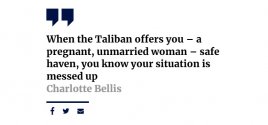You are using an out of date browser. It may not display this or other websites correctly.
You should upgrade or use an alternative browser.
You should upgrade or use an alternative browser.
Miscellaneous News
- Thread starter bd popeye
- Start date
There's absolutely something wrong with Japan. If they think it can redo what it did back in the 1900s to China with the 8 nations alliance against China she got it coming for her.
It's sad that Japan must always latch unto the west and beat up her fellow Asian power and neighbor just so it can feel secure about herself. Where's the honor in that.
@KYli Sour grapes! this early before the games, the good feedback and the guests appreciation is stinging them, as comparison is being made with Tokyo summer Olympics. They can't stomach the fact that International athletes glee of having a luxurious bed instead of a card board, it's one of many samples that show the Chinese are better in organizing an international event compare to the Japanese....lol, As always with the American , Indians and now the Japanese, the Copium of human rights abuses is their only medicine to escape depression and reality.,,,hahaha
I for one is never a fan of China hosting an Olympic, it has to many negative variables and subjected to immense political pressure, BUT after seeing the Tokyo Summer Olympic debacle, I change my mind cause whatever China does is always a plus, nobody can beat the Japanese for hosting an embarrassing and forgettable Olympic...lol
Last edited:
PiSigma
"the engineer"
Are you trying to quote Sean Connery from the rock? It's "losers always whine about their best, winners go home and fuck the prom queen".
This is a news report from Nov. 2021.
I post it not because I think its interesting, but to bring to light something that's missing:
According to this article, the US was going to announce 5-10 projects that they will invest in with their B3W project. They would do this in January.
They did not do so.
This is a failure. This is the US not keeping their word. While I'm sure many, many excuses can be made, at the end of the day, they did not keep their word.
This is more significant than it seems, folks. As the saying goes, "losers make excuses, winners just win".
Here the US didn't even bother to try, so losers already beat them.
AssassinsMace
Lieutenant General
@KYli Sour grapes! this early before the games, the good feedback and the guests appreciation is stinging them, as comparison is being made with Tokyo summer Olympics. They can't stomach the fact that International athletes glee of having a luxurious bed instead of a card board, it's one of many samples that show the Chinese are better in organizing an international event compare to the Japanese....lol, As always with the American , Indians and now the Japanese, the Copium of human rights abuses is their only medicine to escape depression and reality.,,,hahaha
I for one is never a fan of China hosting an Olympic, it has to many negative variables and subjected to immense political pressure, BUT after seeing the Tokyo Summer Olympic debacle, I change my mind cause whatever China does is always a plus, nobody can beat the Japanese for hosting an embarrassing and forgettable Olympic...lol
Yeah, they're mad....I hope the grapes are really soar to those 倭 losers...LOL

in the late Qing dynasty, Empress Dowager Cixi was besieged by palace intrigue between bureaucratic factions that led to complete inaction, and the defeat of the Beiyang Fleet by Imperial Japan.
Legends say that in the Guangxu era, when a delegation from the upstart Imperial Japan visited the Beiyang Fleet, a Japanese officer put their white gloved hand inside a Qing artillery gun.
The white glove came back with streaks of brown, indicating rust. The Japanese officer reported to the navy that it would be able to defeat the Beiyang Fleet.

in the late Qing dynasty, Empress Dowager Cixi was besieged by palace intrigue between bureaucratic factions that led to complete inaction, and the defeat of the Beiyang Fleet by Imperial Japan.
Legends say that in the Guangxu era, when a delegation from the upstart Imperial Japan visited the Beiyang Fleet, a Japanese officer put their white gloved hand inside a Qing artillery gun.
The white glove came back with streaks of brown, indicating rust. The Japanese officer reported to the navy that it would be able to defeat the Beiyang Fleet.

Overdeployed and fatigued, the USN is just overstretched.... (overstretched like the japanese hookers they visit when port of call comes)

Remember that Al Jazeera reporter who had been on the ground covering the fall of Kabul? Well this happened.
Pregnant New Zealander offered refuge by Taliban after being denied re-entry by home country over Covid-19 border controls
- Charlotte Bellis contacted the Taliban for help after realising she was pregnant and being told she couldn’t return to New Zealand
- Afghanistan is the only other place her and her partner have visas to live. In Qatar, where her employer is headquartered, unmarried pregnancy is illegal
A Taliban fighter mans a machine gun mounted on a vehicle during a demonstration condemning recent protest by women’s rights activists in Kabul on January 21. Photo: AFP
A pregnant New Zealand journalist denied re-entry to her home country to give birth said she has instead been offered refuge by the Afghan Taliban.
“This just feels like such a breach of trust,” Charlotte Bellis told Radio New Zealand on Sunday from Kabul.
She had been working for Al Jazeera in Afghanistan, but said she didn’t realise she was pregnant until she was at the media company’s headquarters in Doha, Qatar.
Charlotte Bellis realised she was pregnant in Qatar, where unmarried pregnancy is illegal. Photo: Jim Huylebroek/ New Zealand Herald
It is illegal to be pregnant and unmarried in Qatar, so Bellis kept the pregnancy secret as she prepared to return to New Zealand.
Upon being told she did not qualify for an exemption under New Zealand’s strict Covid-19 border controls, Bellis said she called senior Taliban contacts and was told she could give birth there.
“We’re happy for you, you can come and you won’t have a problem,” Bellis said in an interview about what the Taliban had told her.
They also said: “Don’t worry. Everything will be fine,” she told The New Zealand Herald.
“In my time of need, the New Zealand government said you’re not welcome here.”
“When the Taliban offers you – a pregnant, unmarried woman – safe haven, you know your situation is messed up.”
Bellis, who once questioned the Taliban about what they would do to ensure the rights of women and girls, said it was “brutally ironic” she was now asking the same question of her own government.
After going public with her situation, and involving lawyers, Bellis said she had been contacted by New Zealand officials who said her rejected application was under review.
The government’s Covid-19 Response Minister Chris Hipkins said he had asked officials to check whether the proper procedures had been followed in Bellis’ case, “which appeared at first sight to warrant further explanation”.
New Zealand has managed to keep the spread of the coronavirus to a minimum during the pandemic and has reported just 52 Covid-19 deaths among its population of 5 million. Faced with an outbreak of the Omicron variant, it recently scrapped plans to ease entry for returning nationals and instead closed its borders – except for emergency cases – to anyone without an existing quarantine booking.
Returning citizens must spend 10 days isolating in quarantine hotels run by the military – leading to a backlog of thousands of people wanting to return home vying for spots.
Stories of citizens stranded abroad in dire circumstances have caused embarrassment for Prime Minister Jacinda Ardern and her government, but Bellis’ situation is particularly striking.
Last year, Bellis was working for Al Jazeera covering the withdrawal of American troops from Afghanistan when she gained international attention by questioning Taliban leaders about their treatment of women and girls.
Taliban fighters stand guard before the start a pro-regime demonstration in front of the US embassy in Kabul on Wednesday. Photo: AFP
On Saturday, Bellis described her pregnancy as a “miracle” after earlier being told by doctors she couldn’t have children. She is due to give birth to a girl in May.
Extramarital sex is illegal in Qatar and Bellis said she realised she needed to leave. She repeatedly tried to get back to New Zealand in a lottery-style system for returning citizens but without success.
She said she resigned from Al Jazeera in November and the couple moved to her partner Jim Huylebroek’s native Belgium. But she couldn’t stay long, she said, because she wasn’t a resident.
Senior Taliban contacts told her she would be fine if she returned to Afghanistan, she said, adding: “Just tell people you’re married and if it escalates, call us. Don’t worry.”
Bellis said she sent 59 documents to New Zealand authorities in Afghanistan but they rejected her application for an emergency return.
Chris Bunny, the joint head of New Zealand’s Managed Isolation and Quarantine system, told The New Zealand Herald that Bellis’ emergency application didn’t fit a requirement that she travel within 14 days.
He said staff had reached out to Bellis about making another application that would fit within the requirements.
Bellis said that pregnancy can be a death sentence in Afghanistan because of the poor state of maternity care and lack of surgical capabilities.
She said that after talking to lawyers, politicians and public relations people in New Zealand, her case seems to be moving forward again, although she has yet to be approved passage home.
Additional reporting by Associated Press
manqiangrexue
Brigadier
Surely, that's not an operational ship with sailors, is it? Those are tourists? It's a last visit before scuttling? What's going on? It looks like a ghost ship; it just cannot be an operational USN ship... right?Overdeployed and fatigued, the USN is just overstretched.... (overstretched like the japanese hookers they visit when port of call comes)
View attachment 82002
Edit: Nevermind; just Googled it. Yeah, that's an operational USN ship with real sailors on it...
Last edited:




